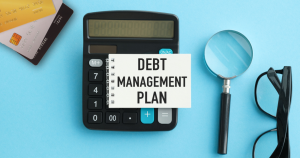Key takeaways
- Being a college student opens up opportunities for attractive student credit cards with cash back or rewards.
- Before applying for a student credit card, it’s important to have savings and an understanding of how credit cards work.
- A plan for your first credit card, income and honesty about personal discipline with money are factors to consider before applying for a credit card.
With so many attractive student credit cards on the market, being a college student opens the door to some exciting card opportunities. You can earn cash back or travel rewards on everyday purchases, like groceries or streaming services. You might even score a welcome bonus.
However, just because you can doesn’t mean you should. Access to a credit line is a mighty temptation. If you’re not careful, you could end up with a heavy debt load that can take years to pay off. To avoid that, you want to be sure you’re truly ready for your first student credit card. Here are six signs that will help you determine that.
You have savings
Before you apply for a student credit card, make sure you have savings to cover unexpected expenses — or what’s often called an “emergency fund.” Without one, you might end up using your credit card to cover surprise expenses. That’s an easy way to get into expensive debt.
Experts usually recommend having three to six months’ worth of living expenses in your emergency fund. Of course, that’s a lofty goal when you’re just starting your financial journey. You can aim for a lower amount for now. Even $500 to $1,000 can make a huge difference.
Besides, saving money is a crucial skill that shows you have discipline. And you’ll need plenty of that to manage a credit card responsibly.
You pay your bills on time
Speaking of responsibility and discipline, another important thing that demonstrates both is paying your bills on time. From internet bills and subscriptions to rent, you might be dealing with multiple recurring charges each month. If you’re always on top of your payments, that’s a great sign. In a way, a monthly credit card payment is a recurring charge, too.
That said, remember that unless you spend the same amount on your card every month, that charge will fluctuate. You’ll want to avoid only making minimum payments, as that will lead to debt. With a credit card, you’ll need to learn to keep your spending consistent and plan for when it’s not.
You know how credit cards work
This leads us to the next point: you need a good understanding of how a credit card works.
Bankrate insight
A credit limit isn’t like the balance on your checking account. Your checking account holds money that belongs to you. The money you spend on a credit card belongs to the bank. Every charge you make is essentially a loan.
Like any credit product, a credit card comes with terms. Before you apply, make sure you understand them, including:
- APR. How much is it, and how is it calculated? When is it charged?
- Fees. Read the fine print to determine in which instances you can be charged a fee. It’s best to avoid cards with unnecessary fees like program fees and monthly fees.
- Closing and payment due dates. The former shows when a statement period ends, meaning the charges up to that point will be factored into the card’s balance for the month. The closing date comes a few weeks before the payment due date.
- Credit limit. This is the maximum balance you can carry on the card. Note that maxing out your card can damage your credit. To avoid that, use less than 30 percent of your available credit.
- Rewards. If your card offers rewards, find out how they work. Sometimes, rewards structures can be complicated, and redemptions — even more so.
You have a plan for your first credit card
Think about why you want a credit card in the first place. Getting one just because you can is probably not the best idea. Try to approach this step with a plan in mind.
For example, you might want a student credit card to earn rewards. Think about the purchases you’ll put on the card. The key is to ensure you’re not changing your spending habits to earn cash back or points.
Or you might want to get a card to build credit. This is an excellent idea! A student card is probably one of your first interactions with credit and can be a perfect tool to get your foot in the door.
Before you apply, learn about how card usage impacts your credit scores. This will help you figure out what kind of credit card habits you’ll need to adopt.
You have income
Even student credit cards come with income requirements. Luckily, what’s considered income on a student credit card application is defined rather broadly.
For instance, if you’re under 21 and a student, you can include:
- Personal income, which can be from a job or work-study program
- Allowances from your family
- Money left over from scholarships and financial aid (not student loans) after covering tuition and other college costs
Keep in mind:
If you’re over 21, you can also include income from self-employment and household income (which includes income of a spouse or partner).
You’re honest with yourself
This is probably the hardest part to define, yet it’s also the most crucial one. Even people who have used credit cards for many years struggle with it.
Be honest with yourself: Can you handle access to a credit line? Only you truly know yourself and your relationship with money.
Think about whether you’re prone to impulse purchases or spending money under peer pressure. Think about how you manage your budget or spending plan. If you don’t have one yet, that’s another thing to develop before applying for a credit card.
If you realize your spending decisions aren’t always sound, it doesn’t mean something is wrong with you or that you should never have a credit card. Trust me, I made a mess of my credit in my early 20s too, and now my credit history is spotless. It just means you’ll want to work on your relationship with money before you expand it to credit cards.
Waiting might not be all that exciting, but it might save you countless headaches — and a lot of money. I see too many TikToks on my For You page of people between 21 and 23 years old sharing their eye-watering credit card balances. Imagine starting out your financial journey with tens of thousands of dollars in expensive debt. Nobody wants that.
To avoid finding yourself in such a situation, wait to get a credit card until you can sincerely say you’re responsible with your money, and a credit line won’t change that.
The bottom line
There are many benefits to being a student cardholder, from earning rewards and credit building to establishing a relationship with a credit card issuer. But before you take this financial step, make sure you’re ready for it.
If you have income and savings and pay your bills on time, you’re off to a good start. It’s also essential that you understand how credit cards work, and how you’ll use yours.
But above all, be transparent with yourself. Do you have the discipline to have a credit card or do you need a little more time to develop it? There’s nothing wrong with waiting for a while. Only hit that “apply” button when you feel prepared. That’s what financial responsibility looks like.
Why we ask for feedback
Your feedback helps us improve our content and services. It takes less than a minute to
complete.
Your responses are anonymous and will only be used for improving our website.
Help us improve our content
Read the full article here









